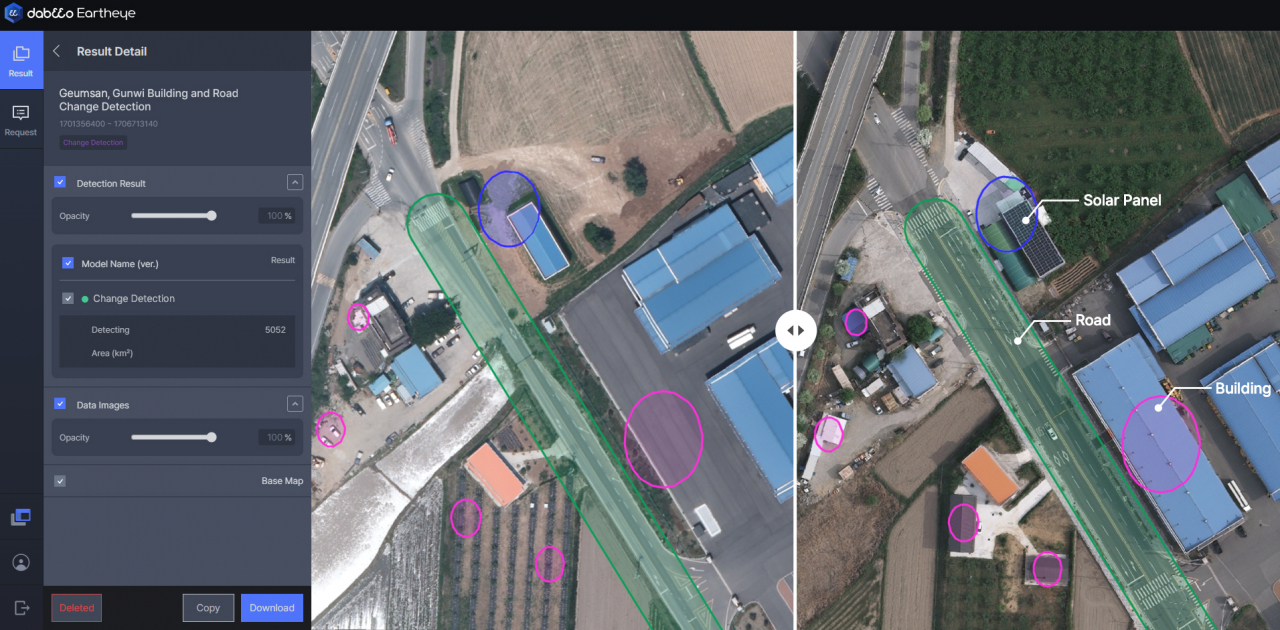 |
This photo provided by Dabeeo shows the AI change detection technology used in its "1:1000 Topographic Map Enhancement Pilot Project" of the area from Geumsan-gun, South Chungcheong Province, to Gunwi-gun in Daegu Metropolitan City, completed in June. (Dabeeo) |
Dabeeo, a geospatial information AI technology company, announced its successful completion in June of the '1:1000 Topographic Map Enhancement Pilot Project' promoted by the National Geographic Information Institute of the Ministry of Land, Infrastructure, and Transport.
During the 180-day project, the company used AI change detection technology to identify changes in buildings, roads and other features over the 54-square-kilometer area covering from Geumsan-gun, South Chungcheong Province, to Gunwi-gun in Daegu.
Dabeeo has been conducting urban change detection projects for several years, but this project is more significant as it further advanced its technological capabilities. To produce high-density numerical topographic maps, Dabeeo added a process to convert provided aerial images into true orthophotos, thereby enhancing the accuracy of the analysis data through an advanced algorithm.
True orthophoto conversion refers to the process of transforming images captured by aircraft into precise orthophotos, correcting distortions caused by terrain and camera tilt to measure the area, height and location of the terrain more accurately. Dabeeo developed and applied this technology optimized for change detection in this project.
As a result, the change detection model achieved a 90 percent precision rate in the F1-Score, a metric for evaluating model performance. The project received high praise for accurately analyzing changes such as the emergence, disappearance and updates of structures within the observed area, including not only buildings and roads but also crosswalks and solar panels on rooftops.
In order to improve its accuracy to near 100 percent, Dabeeo plans to organize the types of undetected cases in the current project and incorporate them into future learning models for further advancement.
Building on the expertise accumulated from the Daejeon change detection project over the past three years and the current Geumsan/Gunwi area project, Dabeeo intends to expand into new projects. Dabeeo in June made an agreement with Bucheon City in Gyeonggi Province for a change detection project and is preparing to commence work.
"Based on continuous research and development in AI change detection technology and the insights gained from previous urban change detection projects, we plan to expand our project scope to include more cities and counties, starting with Bucheon City," said Park Ju Hum, the CEO of Dabeeo.






![[Today’s K-pop] Blackpink’s Jennie, Lisa invited to Coachella as solo acts](http://res.heraldm.com/phpwas/restmb_idxmake.php?idx=644&simg=/content/image/2024/11/21/20241121050099_0.jpg)
